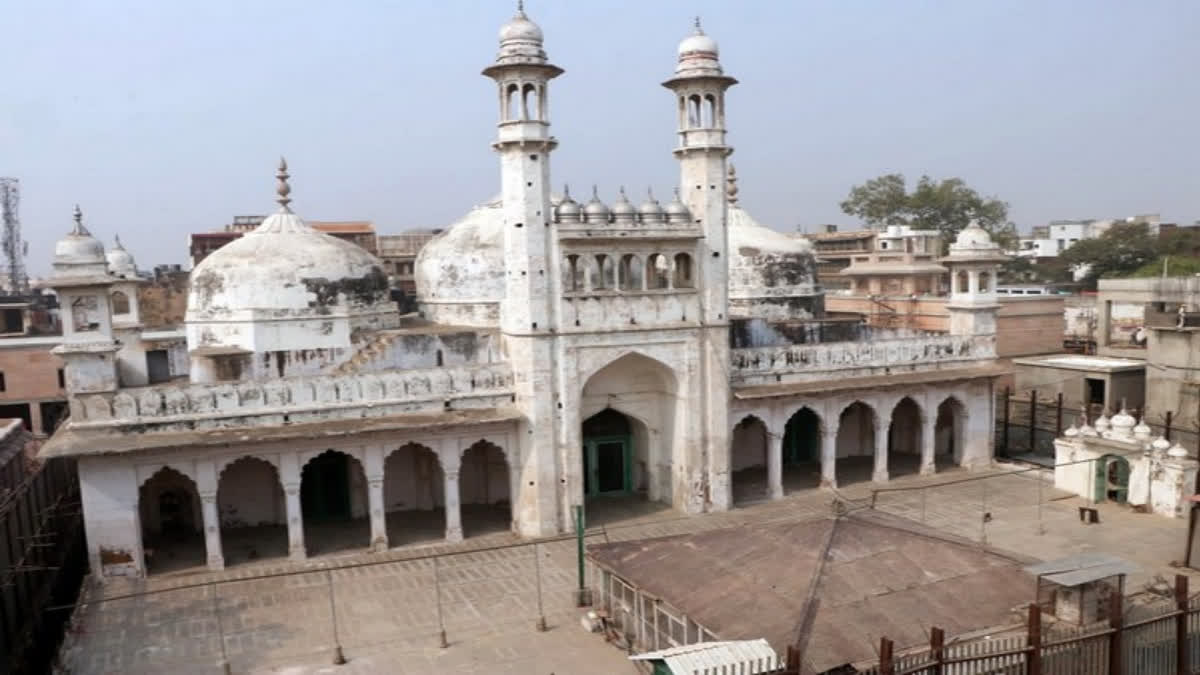Allahabad HC dismisses Muslim side petition challenging maintainability of plea Lucknow:In a major development, the Allahabad High Court has dismissed a plea filed by the Anjuman Intezamia Committee which represents the Muslim side in the Gyanvapi Shringar Gauri case. The plea challenged the maintainability of the case filed by the Hindu side, who requested permission for daily worship of Hindu deities in the Gyanvapi mosque. This decision by the High Court comes after a series of legal battles and debates surrounding the religious rights and ownership of the disputed site.
The Anjuman Intezamia Mosque Committee, responsible for managing the Gyanvapi Mosque in Varanasi, had moved a revision plea in the Allahabad High Court. This plea challenged a previous order by the Varanasi Court, which had dismissed their application objecting to the maintainability of the suit filed by Hindu worshippers. The suit sought the right to worship Hindu deities within the premises of the Gyanvapi Mosque compound.
The Allahabad High Court's dismissal of the revision plea signifies that the court has rejected the mosque committee's challenge to the suit filed by five Hindu women worshippers, which is currently pending before the Varanasi Court. The decision upholds the earlier order of the Varanasi Court, issued on September 12, 2022, which deemed the suit maintainable.
Also Read: Gyanvapi row: HC to again hear mosque committee's plea on suit's maintainability before Varanasi court on July 14
To provide some context, the Anjuman Intezamia Committee had initially approached the High Court in October 2022, shortly after the Varanasi Court dismissed their plea challenging the maintainability of the suit filed by the Hindu women worshippers. The Varanasi District Judge, Ajay Krishna Vishwesha, in his order, stated that the suit filed by the Hindu plaintiffs was not barred by the Places of Worship (Special Provisions) Act, 1991, the Waqf Act 1995, or the U.P. Shri Kashi Vishwanath Temple Act, 1983. These laws were being claimed by the Anjuman Masjid Committee as reasons for the suit's inadmissibility.
The suit filed by the Hindu women worshippers sought the right to worship Maa Shringar Gauri on the outer wall of the Gyanvapi Mosque complex, which is located adjacent to the Kashi Vishwanath temple. The Anjuman Committee had challenged the maintainability of this suit by filing an application under Order 7 Rule 11 CPC, arguing that the suit was barred by the Places of Worship Act, 1991. However, the Varanasi Court rejected this objection, stating in its September 12 order that the Hindu worshippers claimed to have continued worshipping the Hindu deities within the mosque complex even after August 15, 1947. This date serves as the cutoff under the Places of Worship Act. As a result, the Varanasi Court held that the Act would not be applicable in this case.
Also Read: Varanasi court upholds petition to worship at temple in Gyanvapi mosque premises
The Gyanvapi Shringar Gauri case has been a subject of intense legal scrutiny and has been a point of contention between the Muslim and Hindu communities. The Gyanvapi Mosque, built by Mughal Emperor Aurangzeb in the 17th century, stands at a site believed by Hindus to be the birthplace of Lord Shiva. The dispute over the site's ownership and religious significance has sparked widespread debates and legal battles for decades.
